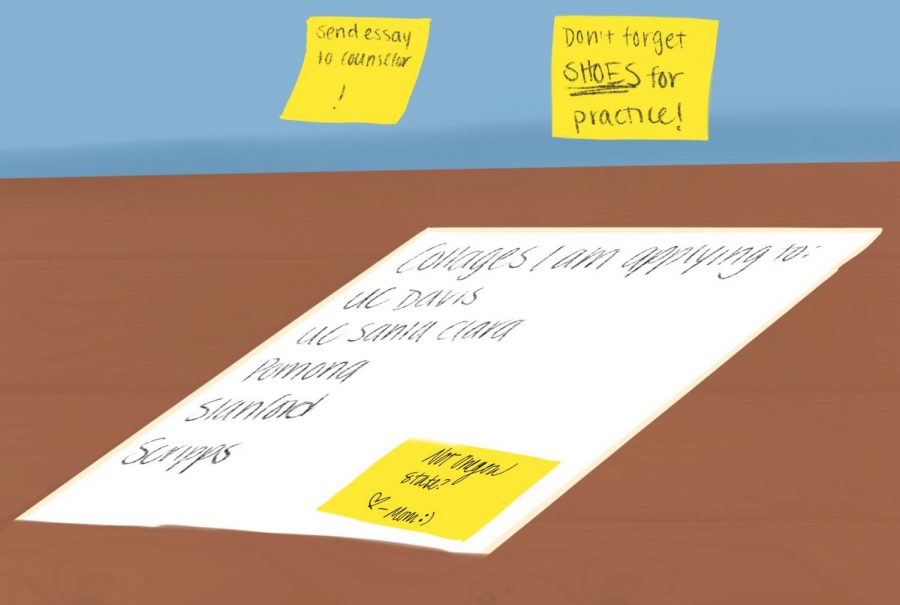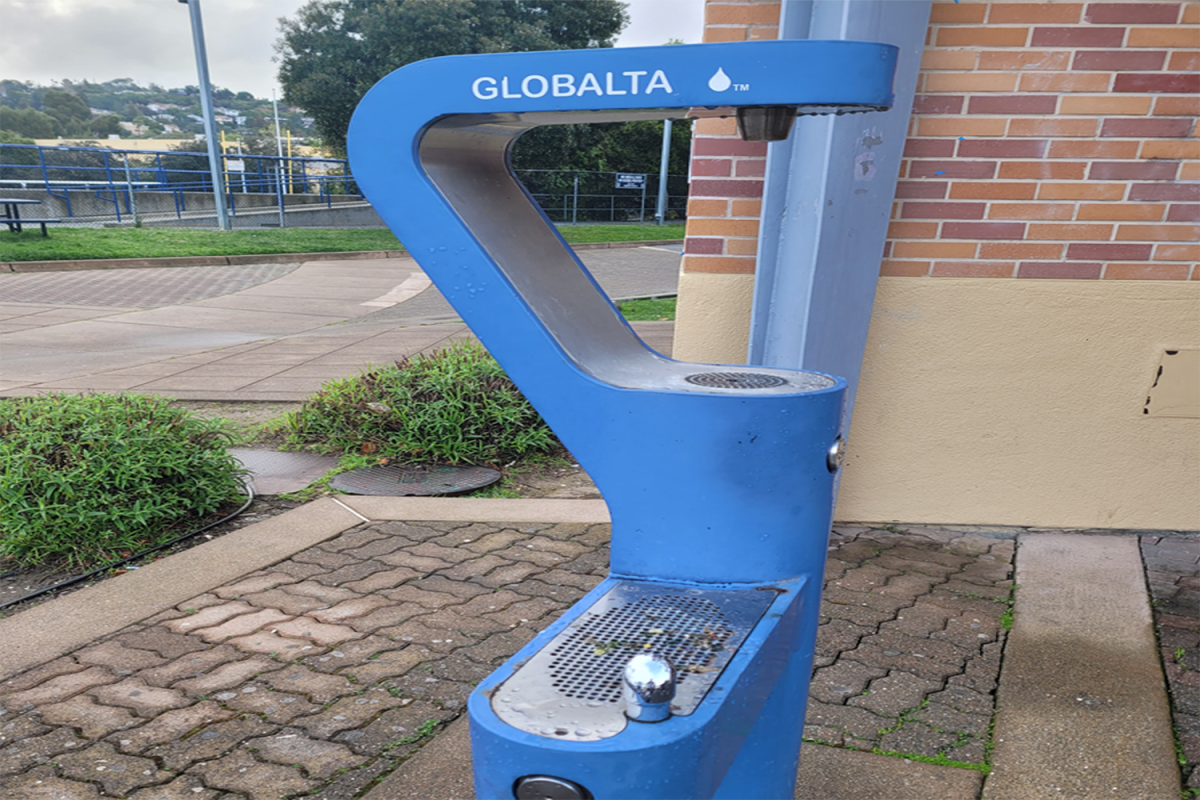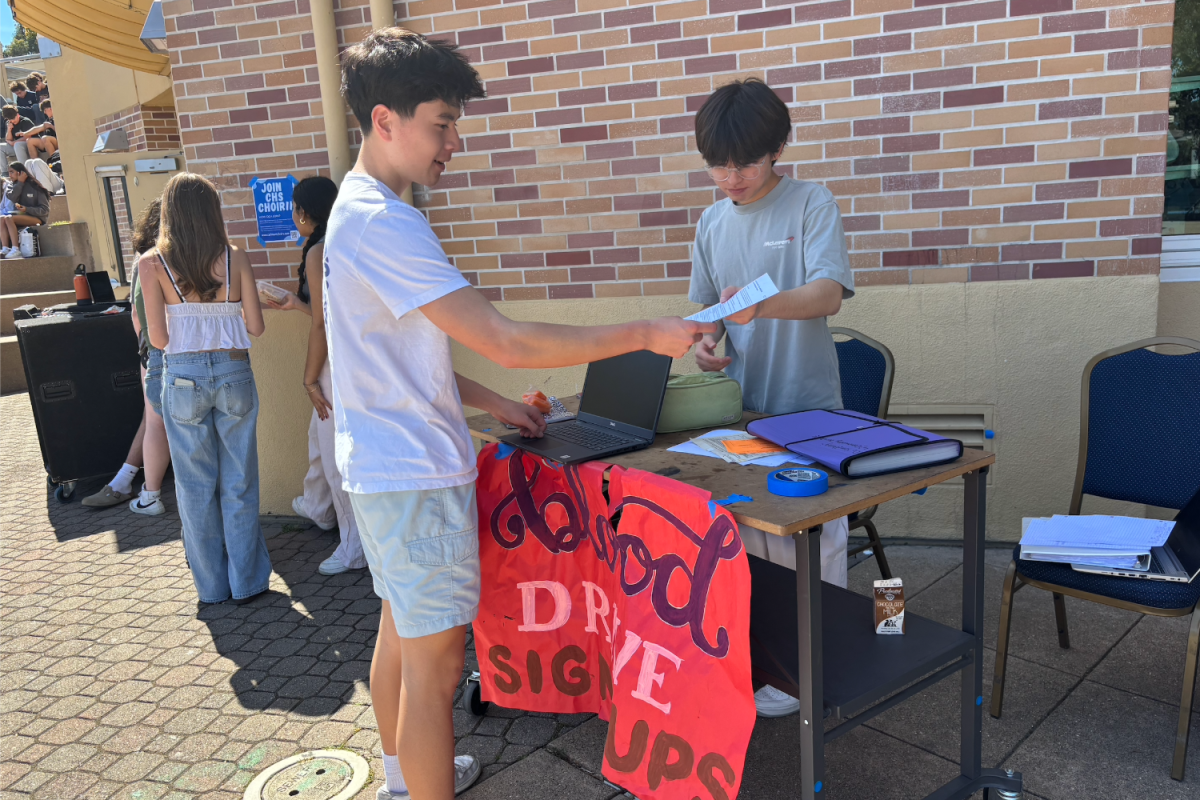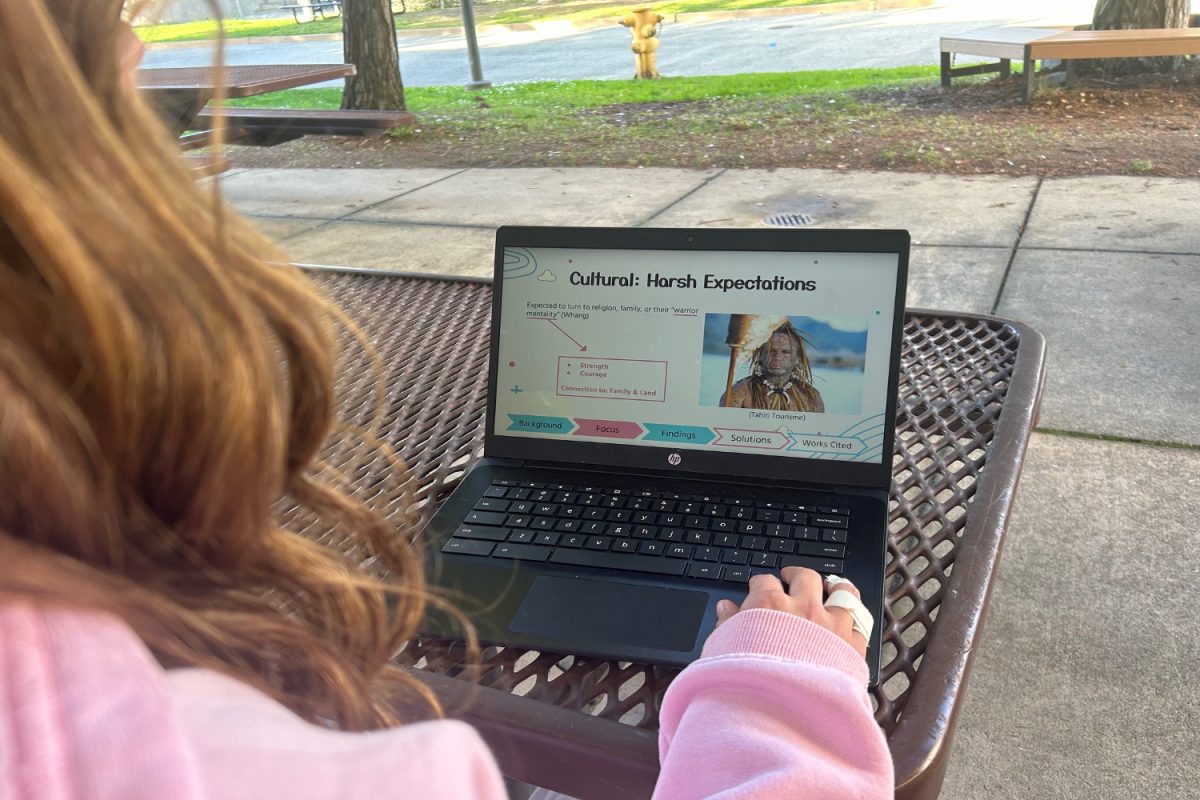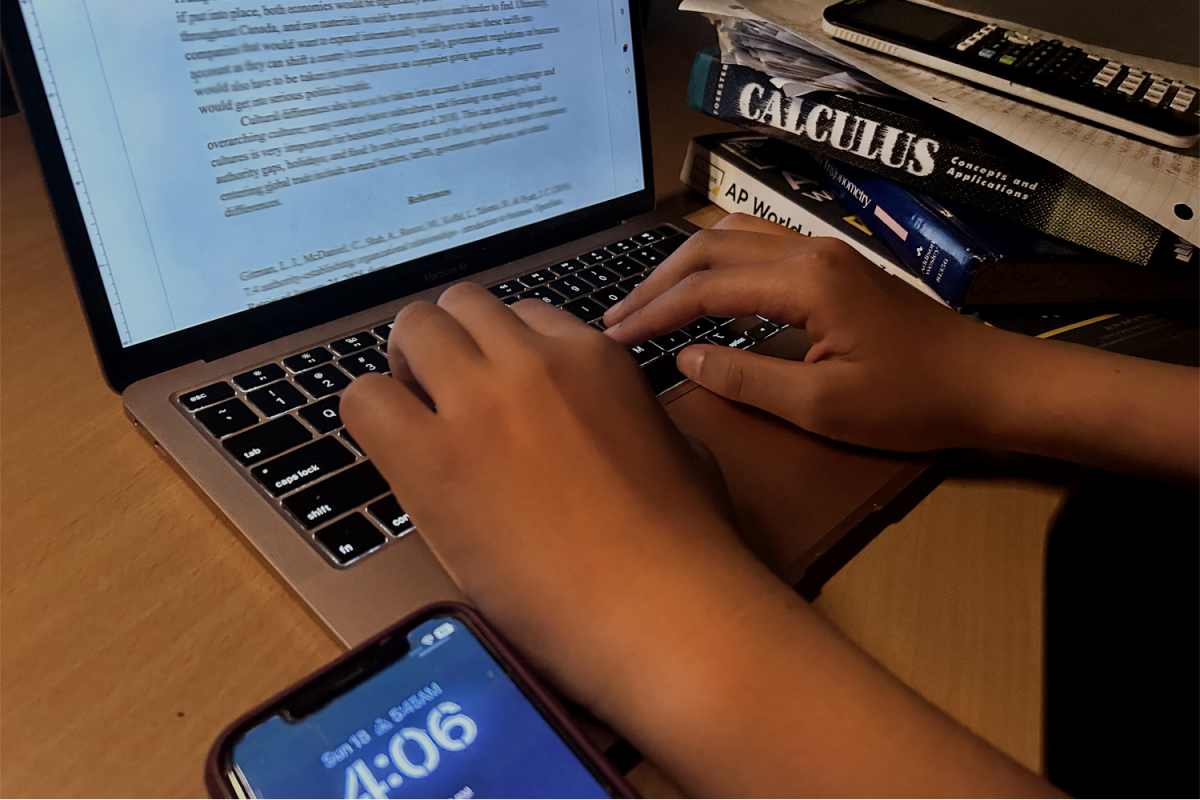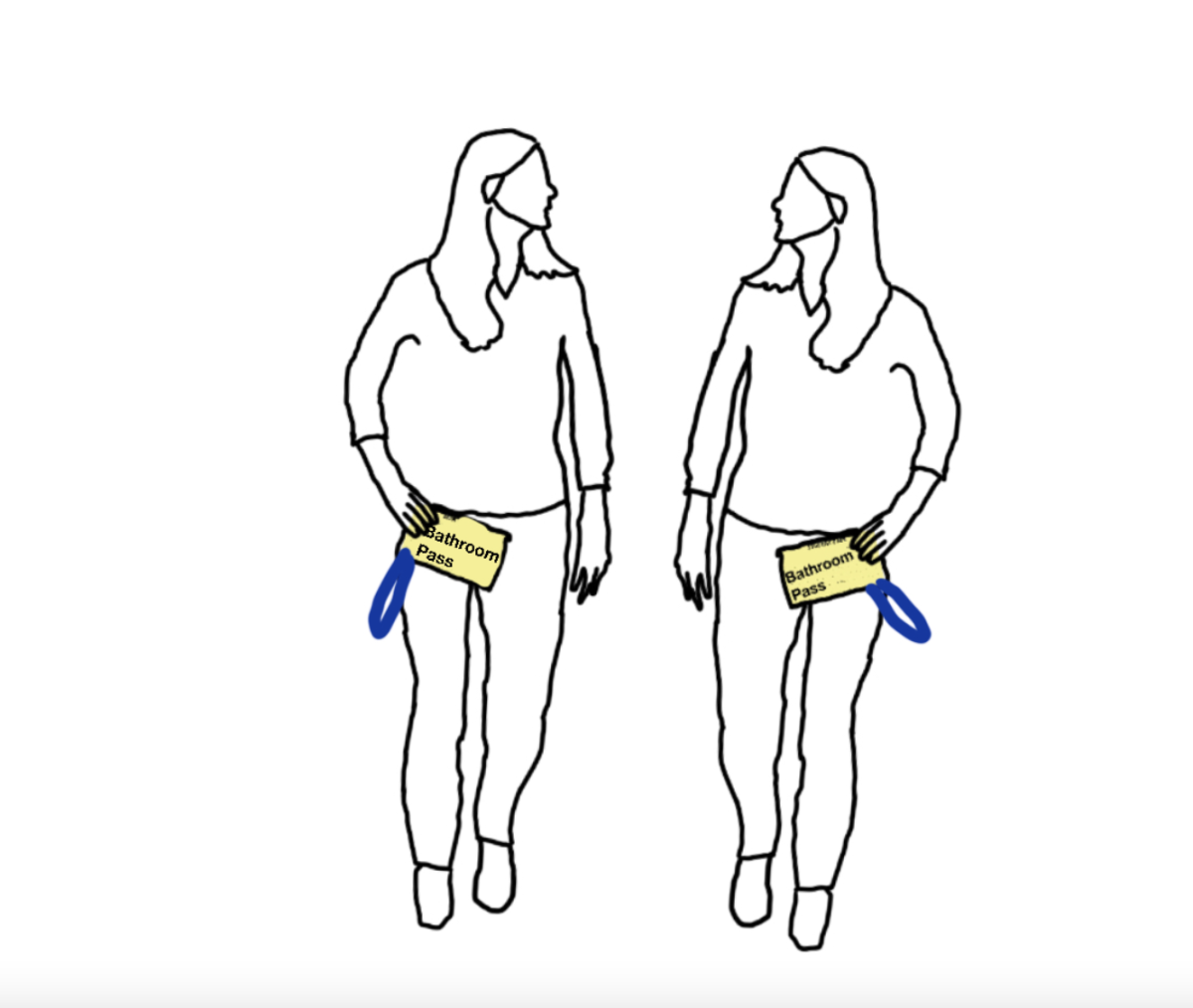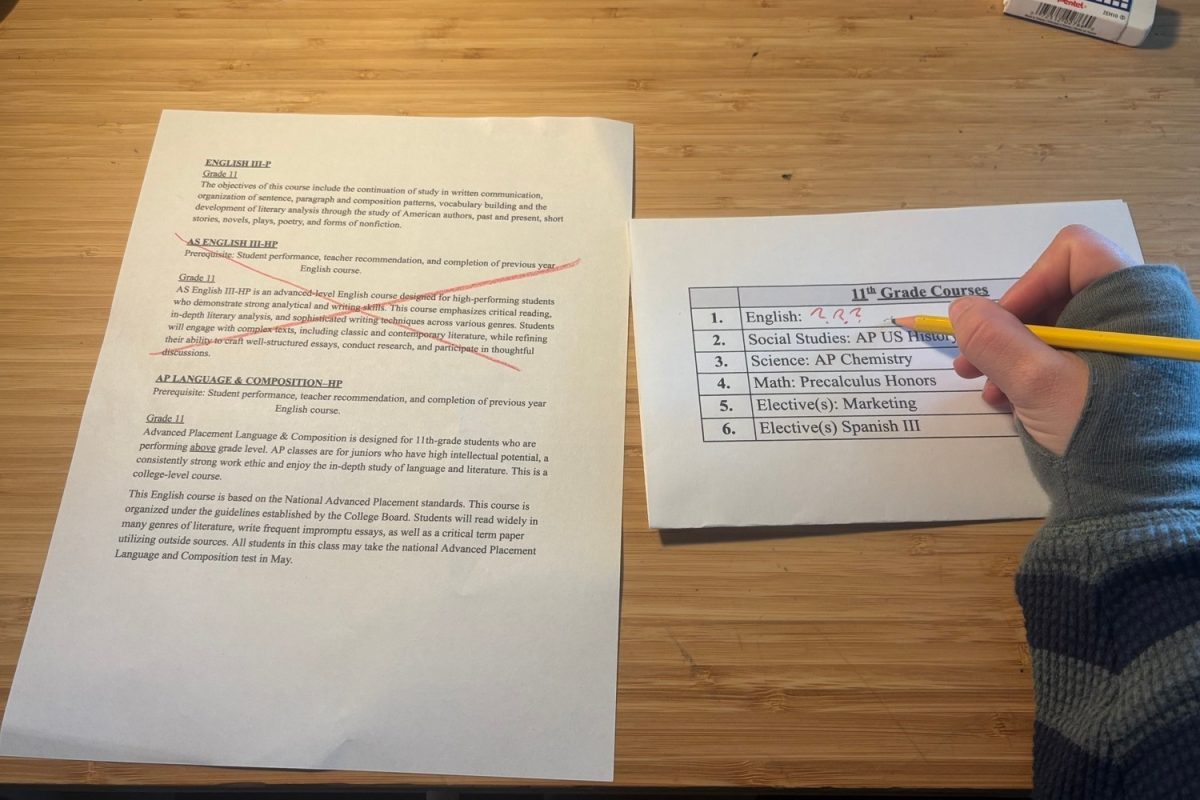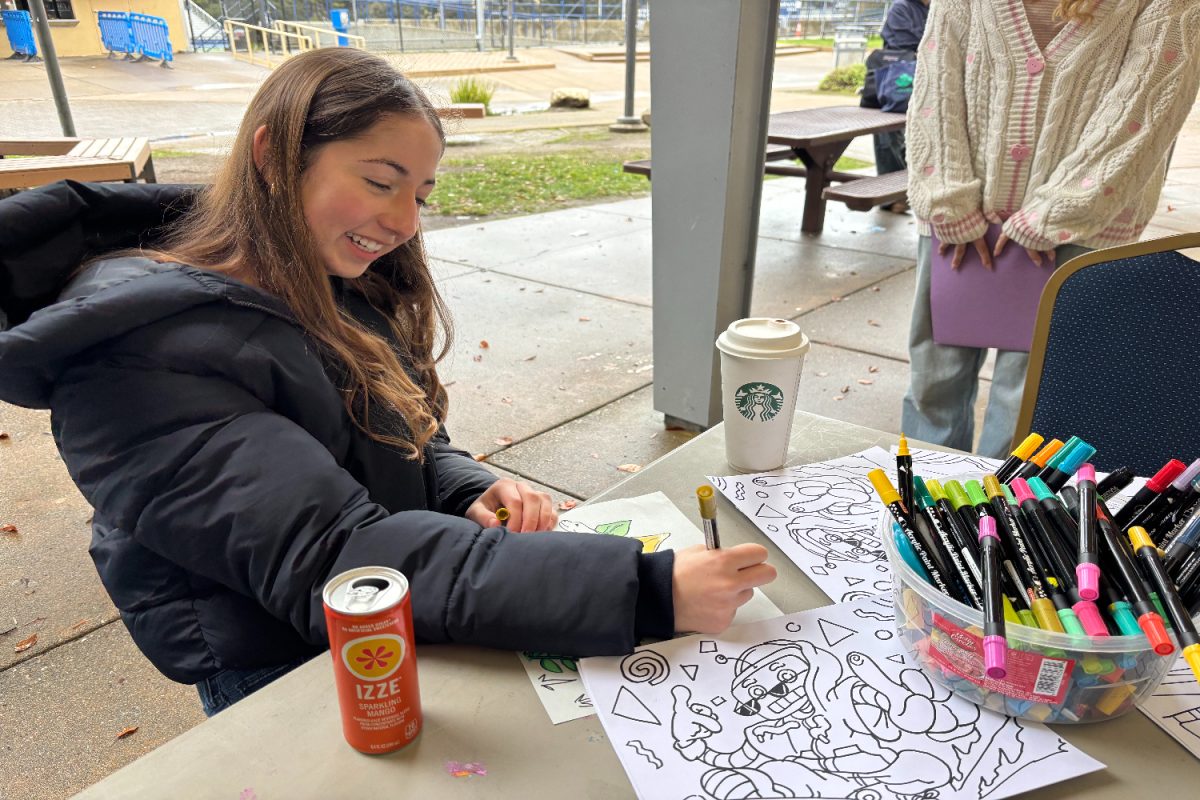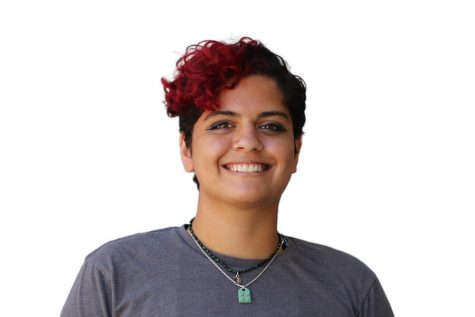As the deadlines approach, different variables complicate the completion of seniors’ college applications.
Before starting the process, students must decide if they want a private college counselor. The counselors help students develop a list of colleges to apply to, keep them on track to complete their applications, and help draft personal statement essays.
“My counselor helps me correct my college essays to make them stand out [find] any grammatical errors, [and] also helped me make a list of colleges I would be most interested in,” said Mackenzie Young, a senior at Carlmont.
However, not all students want a private counselor.
“I just felt I would have more control over the whole situation,” said Esme Grenstam, a senior at Carlmont. “I use the Carlmont counselors, and [they are] pretty helpful.”
For students who do not have private counselors, Carlmont has college counselors available to help students apply.
In addition to deciding whether they want outside help, students must decide where they want to apply.
“I made a list by organizing schools into safety, target, and reach,” Grenstam said. “I researched schools through portals like Naviance and College Vine looking for programs that I was interested in.”
For Young, her college selection process was different and based on where she will be able to pursue her diving career.
“Since I am a recruiting athlete, I chose colleges I would most likely see myself training and learning at,” Young said.
Deciding where to apply comes with the other decisions of whether to apply for early action, early decision, or regular decision.
“I will most likely apply early decision to the one school I am applying to. When you verbally commit to a school, basically commitment to the school through your coach, you are pretty much guaranteed a spot, so I only need to apply to one school,” Young said.
Early decision is not just an option for those committed to sports but is also an option for people who know exactly where they want to attend.
“I’m planning to apply early decision to Brandeis because I want to go somewhere in Boston that’s also a small private school,” said Tommy Chin, a senior at Carlmont.
Applying for early decision gives students the ability to get into the college they have applied to early. However, if they are accepted, the decision is binding, and they must attend that college.
In the past year and a half, COVID-19 has had some additional impacts on the college application process.
“A lot of schools on my list cut their [diving] program because of [COVID-19], so it definitely had an impact on which schools I was looking at,” Young said.
Many colleges also either limited or halted campus tours and information sessions and during the summer.
For example, Wellesley College states that “All college spaces remain closed to visitors. You will be unable to enter any buildings or access facilities during your self-guided tour of campus.” The college does not offer guided tours, only self-guided tours, where attendees can walk around campus alone but do not have a student tour guide.
While he has not been affected by it, Chin noted that tours are not the only thing that has been affected by COVID-19.
“I was planning to submit my SAT scores anyway, but I know many schools have gone test blind or test-optional for the SAT, which may help applicants that could not take it or were not happy with their score,” Chin said.
On top of the difficult decision-making around college applications, the pandemic has also altered the process. As early decision deadlines arrive, students like Young, Chin, and many more, anxiously wait to hear back from schools. Most regular decision applications start to open in November and will close between January and March.

